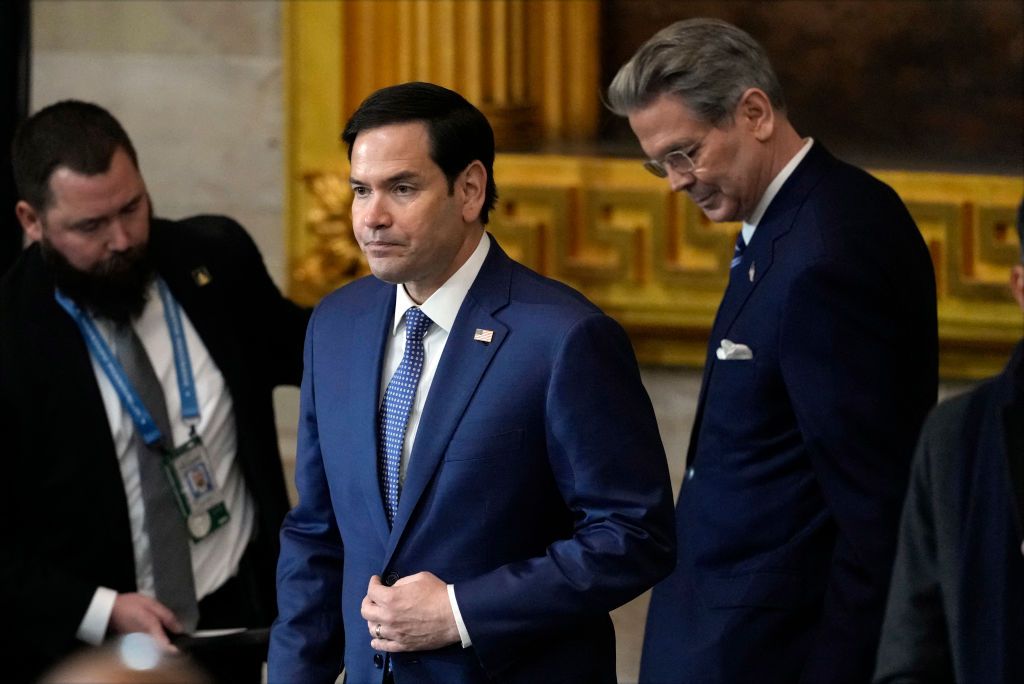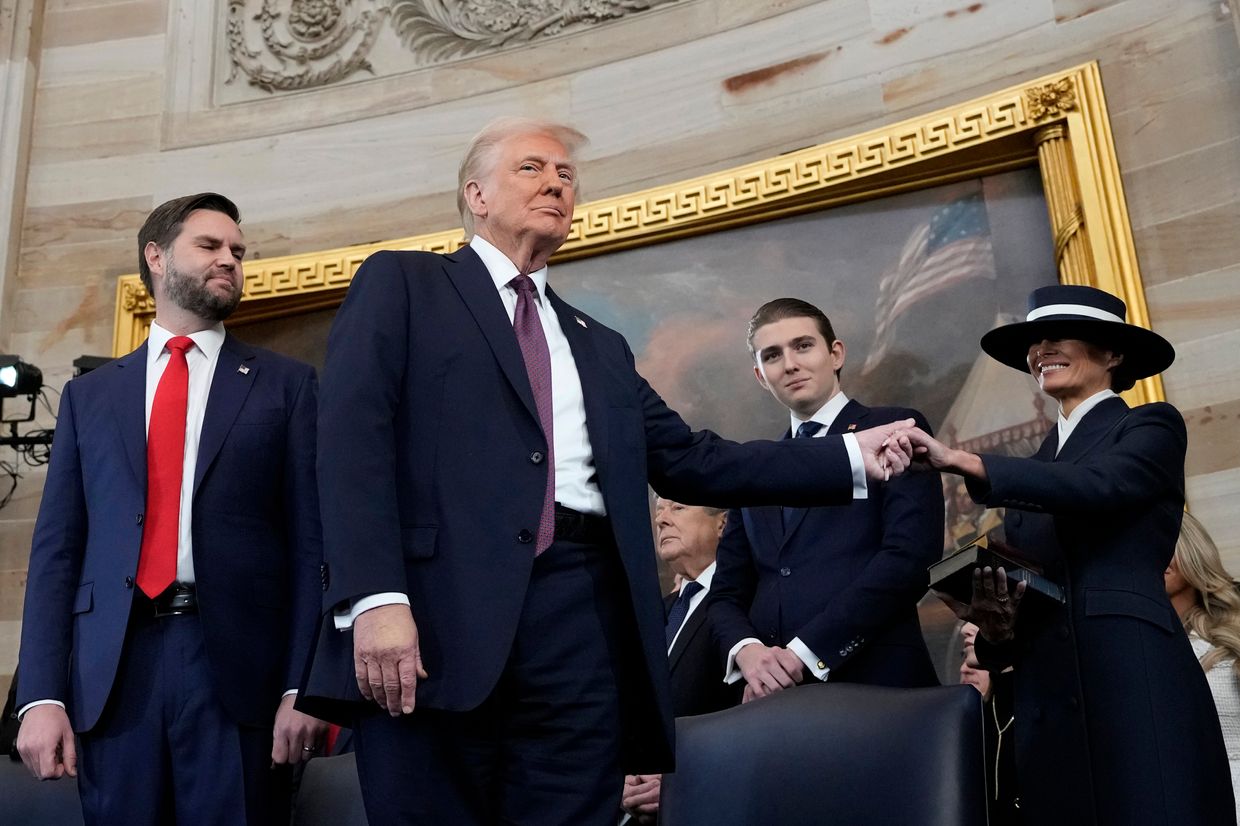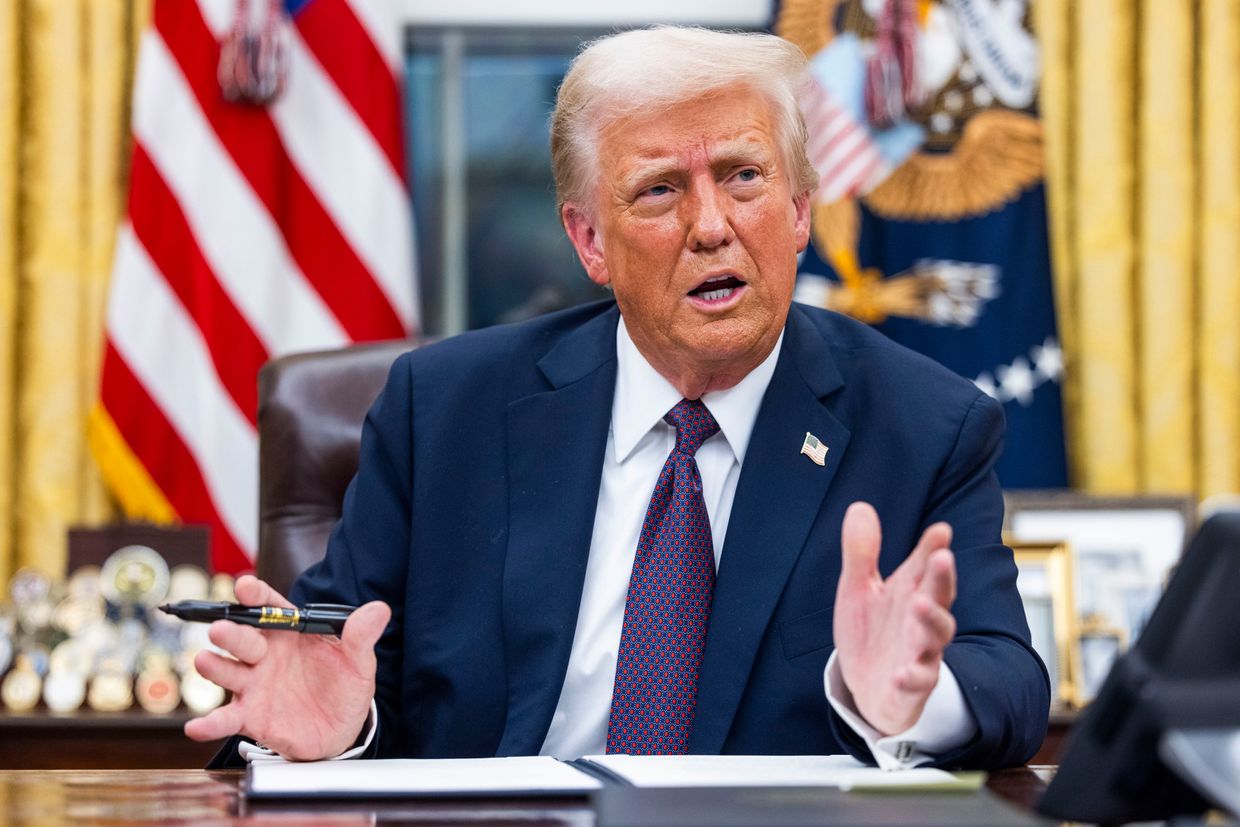Following Trump's inauguration, Russian pundits and politicians show some enthusiasm, some reserve
Donald Trump was long seen as Russian candidate of choice, in Moscow, however, reactions following inauguration are mixed.

Traditional Russian wooden Matryoshka dolls depicting Russian President Vladimir Putin and U.S. President Donald Trump are displayed for sale at a gift shop on the touristic Arbat street in downtown Moscow on Jan. 20, 2025. (Alexander Nemenov/AFP via Getty Images)
Russian President Vladimir Putin was quick to congratulate his U.S. counterpart, Donald Trump, issuing a short statement before the start of the inauguration ceremony in Washington.
"We were always ready to support relations of equal cooperation with any American administration," Putin told members of the country's National Security Council in a call on Jan. 20, claiming that Russia was "open to dialogue on the 'Ukrainian conflict,'" a name used by the Kremlin for the war it wages against Ukraine.
Later reporting suggested that Trump's team was already preparing a call with Putin, which could take place "very quickly." On the following day, however, Putin's press secretary Dmitry Peskov denied any preparations.
Kremlin officials project caution
Russian parliamentarians, whose role is diminished to approving Putin's agenda and attacking his enemies, on Jan. 20 showed signs of reserve.
Trump simply "doesn't have a final stance" on the war, according to Konstantin Kosachev, the deputy speaker of the Federation Council, the upper house of the Russian parliament, which has little to no real power in the country.
This would explain why Trump didn't mention Russia's war a single time in his inauguration speech, Kosachev argued.
This also means that improving Russian-American relations "will be difficult," said Leonid Slutsky, the head of the Russian Parliamentary Committee of Foreign Affairs.
Slutsky, the leader of one of the country's pro-Putin political parties, blamed former U.S. President Joe Biden for the tarnished relations between the two countries.
The U.S. will remain "hostile to Russia," said Russian Senator Andrey Klishas.
Propaganda turns to Zelensky, spreads conspiracy theories
Kremlin pundits, meanwhile, didn't turn their tune, blaming Ukraine for, well, everything.
Olga Skabeeva, the host of a popular evening talk show, connected with Ekaterina Moore, a Washington correspondent for Russian state-controlled media, who demonstrated her invitation to Trump's inauguration on air.
"They invited you, but neither (Ukrainian President Volodymyr) Zelensky nor (French President Emmanuel) Macron," Skabeeva commented, passing next to the fact that Putin was not invited either.

Zelensky, in addition, would have been desperate to receive an invitation, according to Skabeeva, who quoted Donald Trump Jr, the son of the current U.S. president, who has been actively attacking Kyiv online.
Fellow pundit Vladimir Solovyev, on his end, reposted a publication on Telegram according to which "Trump mentioned democracy 637 times and Ukraine not a single time" in his inauguration speech.
In another post, Solovyev attacked Biden, claiming that the ex-president needed to pardon former U.S. Chief Medical Advisor Anthony Fauci because U.S. Covid vaccines had "side effects, which were ordered to stay silent on."
Biden's last-minute presidential pardons were also a topic for Russian Foreign Ministry spokesperson Maria Zakharova, who claimed that these decrees were "self-incriminating."
Zakharova also welcomed Trump's executive order on the recognition of only two genders, insinuating that under Biden, the U.S. government had been actively promoting non-binary identities in the U.S. and abroad.
As a result, "many people's lives were broken," Zakharova claimed.
Aiming for lifting sanctions, Russian analysts believe
Back on Skabeeva's evening show, Russian parliamentarian and political scientist Andrey Isayev saw this year's Inauguration Day as a "competition between Trumpists and globalists."
Russian propaganda's talking points have long been similar to the ones expressed by right and far-right pundits in the U.S.
The first group, according to Isayev, is "obviously prevailing." However, this does not change much for Russia as "both parties fight for Western domination."
With regards to Ukraine, Trump's presidency would not change much, as the new president "will not leave Europe," the Russian parliamentarian argued.

Similar arguments came up on the popular pro-war Telegram channel Rybar, which called upon its readers to "judge (U.S. foreign policy) based on concrete decrees and actions in the next three months," not based on Trump's inauguration speech.
Meanwhile, Kremlin-aligned economists showed hope that sanctions against Russia could be lifted, even if Trump's policies on Russia could be "tough," according to industry expert Leonid Khazanov, who was quoted by pro-Kremlin outlet Lenta.
For 15 years, Lenta was one of the leading Russian independent news outlets. In 2014, months after Russia launched its war against Ukraine, the news outlet was taken over by the Russian government. Fired journalists left for Riga, Latvia, and founded the Meduza news outlet.
Despite Russia's cautious optimism and lack of outright criticism of the incoming administration, Trump didn't return the favor.
On Jan. 20, Trump said that Putin was "destroying Russia" by failing to reach a peace deal with Ukraine. "He should make a deal. I think he's destroying Russia by not making a deal," Trump said following his inauguration.












